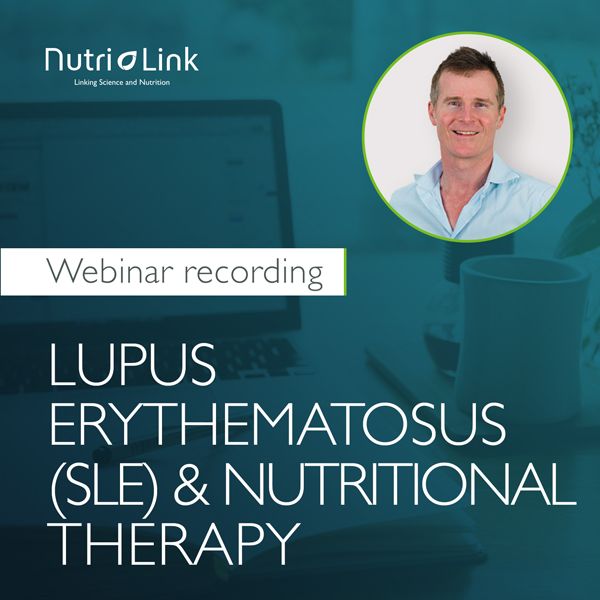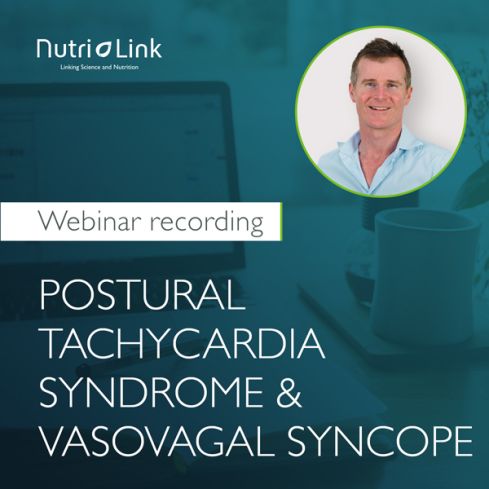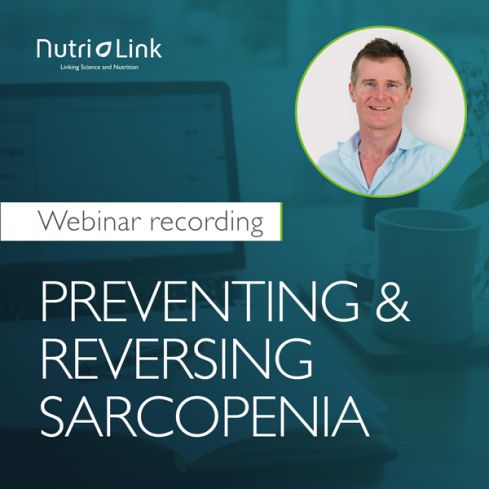WEBINAR: Lupus Erythematosus(SLE) & Nutritional Therapy
Title: Auto-Immune Focus: Systemic Lupus Erythematosus (SLE) & Nutritional Therapy
Presenter: Antony Haynes BA (Hons) RNT mBANT
Date: Wednesday 19th May 2021
Time: 12pm – 1pm GMT (1 hour presentation plus 30 minute live Q&A at the end)
Price: £20 + VAT (50% credited back after live attendance)
WEBINAR ORDERING – please make sure you are logged into your account before attempting to purchase this webinar. Once logged in, you will be able to add this product to your basket and check out online.

order before 2pm for next working day delivery (UK Only)
Food supplements should not be used as a substitute for a balanced and varied diet.
Auto-Immune Focus: Systemic Lupus Erythematosus (SLE) & Nutritional Therapy
SLE (Systemic Lupus Erythematosus) is the most common form of ‘lupus’ of the four kinds, which cause inflammation of multiple organs or organ systems in the body, either acutely or chronically. It is an auto-immune condition, with symptoms typically including skin rashes, pain or swelling in the joints, swelling in the feet, and around the eyes and extreme fatigue. Women aged 15 to 44 and certain ethnic groups are at higher risk for developing SLE than the rest of the population.
As with many auto-immune conditions, there is much that can potentially be done from a nutritional perspective to address the inflammation and signs and symptoms. It is also possible to address underlying contributory factors as well, to reduce the severity of the condition and reduce the risks that systemic inflammation can promote.
- Learn about how SLE manifests itself.
- Learn about who is affected and its incidence in the UK.
- Learn what dietary approaches may be helpful in ameliorating the signs and symptoms of SLE.
- Learn about therapeutic intervention to reduce inflammation and expression of SLE.
- Learn about contributory causes and how to address them with targeted nutritional therapy.
How do I register for a webinar?
Our free webinars are available to Practitioners and Students registered with Nutri-Link. You can create your free account here - Registration | Nutri-Link UK
Is there a cost to attend the webinars?
No, there is no cost for our upcoming webinars Practitioners and Students registered with Nutri-Link.
Can I book multiple webinars at once?
Yes, you can book multiple webinars at once. You will receive a reminder ahead of the webinars.
What happens after I complete my booking?
You will receive a confirmation booking & the booked webinar will appear on your Nutri-Link account.
How do I join the webinar on the day?
When you register you will receive a confirmation email (usually titled "You're registered for [Webinar Name]"), this is via email, the registration link can also be found on your Nutri-Link downloads.
To join a Microsoft Teams webinar after registering, click the "Click here to join the meeting" link in your confirmation email, or use the calendar event sent to your email.
Alternatively visit ‘My Account’ and ‘My Downloadable Products’ where you will also find the link to ‘Register Online’. Once registered by either method Teams will email you your link to join the live webinar.
What if I can’t attend after booking?
Not a problem, all webinars are recorded & the link is sent via email so you can watch at a time that is suitable for you.
Do they carry CPD hours?
Not live, however, you can submit the hour as self-directed learning.
Will I get a certificate of attendance?
Yes, you will receive a certificate of attendance which can be downloaded from your online account.
Will I receive the slides for the webinar?
Yes, they are uploaded to your online account post-webinar along with any other supporting materials.
Who can I contact if I have technical issues or questions?
You can either telephone: 0333 577 0404 or email [email protected]. Our offices are open 9:00 am to 5:00 pm, Monday to Friday.





